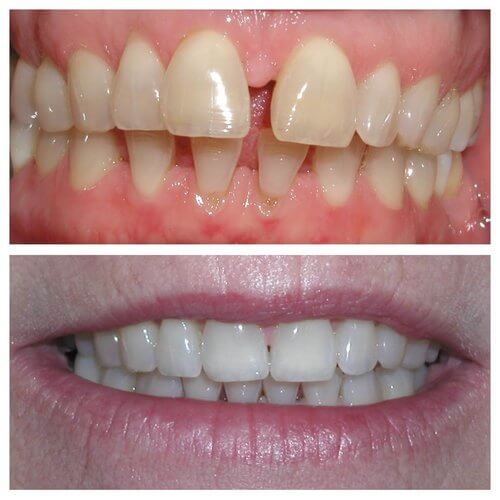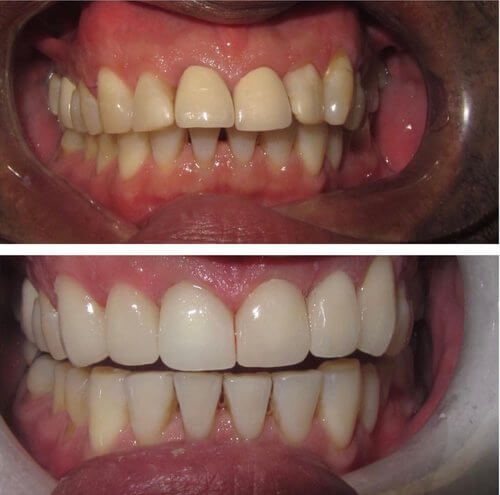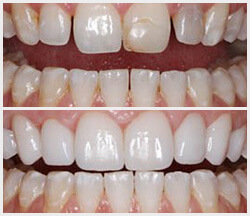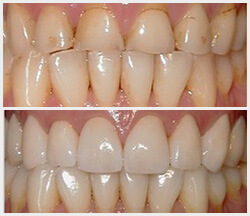How TMJ Disorders Relate to Stress and Other Mental Health Issues
Temporomandibular joint disorders (TMD) can cause pain and discomfort, difficulty opening and closing the mouth, and other problems. While the exact cause of TMJ disorders isn’t known, stress and other mental health issues play a role in their development and exacerbation.
Explore the relationship between TMJ disorders, stress, and other mental health issues, including anxiety and depression.
Stress and TMJ Disorders
Stress is a common trigger for TMJ disorders. When we’re stressed, we tend to clench our jaw and grind our teeth (bruxism). These actions can put a strain on our muscles and joints in the jaw and contribute to TMJ disorder symptoms. Furthermore, stress can lead to other mental health issues such as anxiety and depression, which can in turn exacerbate TMJ disorder symptoms.
Stress reduction techniques can help reduce tension in the body. Additionally, seeking support from a therapist or counselor can help address other underlying mental health issues that may be contributing to stress and TMD.
Depression and TMJ Disorders
Depression is a common mental health issue that can co-occur with TMJ disorders. The pain and discomfort associated with TMJ disorders can contribute to feelings of hopelessness and sadness, which can worsen depression.
Furthermore, depression can also impact physical health and contribute to muscle tension and pain, TMJ disorder symptoms. This can create a vicious cycle, where depression and TMJ disorder symptoms feed off each other and become increasingly difficult to manage. A mental health professional can help you address depression symptoms and develop strategies to manage stress and improve your overall well-being.
Anxiety and TMJ Disorders
Anxiety can cause muscle tension, contributing to jaw clenching and teeth grinding. This can put a strain on the muscles and joints in the jaw and lead to TMJ disorder symptoms such as jaw pain, headaches, and difficulty chewing.
The pain and discomfort associated with TMJ disorders can also contribute to anxiety and make it difficult to relax and manage stress. In turn, your anxiety and TMD symptoms can worsen. It’s crucial to seek care from a mental health specialist if you suspect anxiety is behind your frequent jaw pain.
Other Mental Health Issues and TMJ Disorders
Other mental health-related issues that may worsen TMJ disorders include:
- Post-Traumatic Stress Disorder (PTSD): PTSD can cause muscle tension and hyperarousal, which can lead to jaw clenching and teeth grinding that contribute to TMJ disorder symptoms.
- Obsessive-Compulsive Disorder (OCD): OCD can lead to compulsive behaviors such as teeth grinding or clenching the jaw, which can put a strain on the muscles and joints in the jaw and contribute to TMJ disorder symptoms.
- Substance Use Disorders: Substance use disorders can impact physical health and contribute to muscle tension and pain, which can exacerbate TMJ disorder symptoms.
By addressing both mental health issues and TMJ disorder symptoms, it’s possible to improve your quality of life and reduce the impact of these conditions on your physical and mental health.
Managing TMJ Disorders Through Stress Reduction Techniques
Managing TMJ disorders can be challenging, but several stress reduction techniques can help alleviate symptoms. TMJ disorders are often caused or exacerbated by stress and tension, so finding ways to relax and reduce stress with other TMD treatments can effectively manage symptoms.
Try the following techniques:
- Meditation: This practice involves focusing on your breath or a specific object, which can help quiet your mind and reduce stress.
- Yoga: This ancient practice combines physical postures with breathing exercises and meditation, making it a great way to reduce stress and tension in the body. Certain yoga postures can also help stretch and relax the muscles in the jaw, neck, and shoulders, alleviating TMJ disorder symptoms.
- Deep Breathing: Taking slow, deep breaths can help reduce stress and tension in the body. Try inhaling slowly through your nose, filling your belly with air, and then exhaling slowly through your mouth.
- Progressive Muscle Relaxation: This technique involves tensing and relaxing different muscle groups in the body, starting at the toes and working your way up to the head. This can help reduce overall muscle tension and promote relaxation.
- Mindfulness: Mindfulness involves being present in the moment and nonjudgmentally observing your thoughts and feelings. This can help reduce stress and improve overall well-being to alleviate TMJ disorder symptoms.
Frequently Asked Questions
What should I do if I suspect I have a TMJ disorder and mental health concerns?
If you suspect you have a TMJ disorder and are experiencing mental health concerns, you should seek professional help. Schedule an appointment with your dentist or a TMJ specialist to receive a proper diagnosis and discuss your treatment options. Additionally, consider seeking mental health support from a therapist or counselor to help manage any related symptoms.
How long does TMD from stress last?
It depends. The duration of TMJ disorder symptoms can vary based on the individual and the severity of the condition. TMJ disorder symptoms caused by stress may last a few days to a few weeks. If the symptoms persist, seek professional help to identify the underlying cause and develop a treatment plan.
Can TMD cause mood swings?
Yes, TMJ disorders can cause mood swings. The pain and discomfort of TMJ disorders can lead to irritability, anxiety, and depression. In addition, the impact of TMJ disorders on daily activities such as eating, speaking, and sleeping can also contribute to mood changes.
Can therapy help manage TMJ disorder symptoms?
Yes, therapy can help manage TMJ disorder symptoms. Cognitive-behavioral therapy (CBT) can reduce pain and improve the overall quality of life in individuals with TMJ disorders. Relaxation techniques, such as meditation and yoga, can help manage stress and reduce TMJ disorder symptoms.
Improve Your Mental Health and TMD Symptoms
Don’t suffer in silence. If you’re experiencing TMJ disorder symptoms and related mental health concerns. Seeking professional help is crucial for proper diagnosis and effective treatment.
Take control of your pain and improve your quality of life by contacting us today to schedule an appointment. Book a consultation with your Staten Island dentists to discuss treatment options.



Insurance
We accept many insurances. Please contact one of our Insurance Coordinators to discuss your dental coverage plan.
(718) 948 5111
appointments@sidental.com
Open 7 days a week
Reviews
The dentists are absolutely excellent…
“I have been going here for years. The dentists are absolutely excellent and they always have an appointment available that fits into a busy schedule. I also completed invisilgn and my teeth are perfectly straight now. They also practice preventive medicine and just went in for my 6 month cleaning. Every time feel like I have a new set of choppers and best yet the check up noted no cavities!.”
— J.R
Pleasant visit
“As usual, it was a pleasant visit thanks to Dr. Nasso and her great staff..”
— C.M.
Always treated with courtesy and respect.
“Always treated with courtesy and respect. All of my questions were answered regarding upcoming treatments..”
— J.C.
Smile Profile




Put your best face forward.
Create a positive change to your teeth and your smile.
